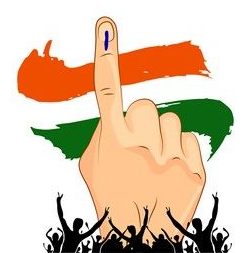In a diverse and dynamic country like India, crafting a political message that resonates with voters requires a careful blend of understanding, empathy, and strategic communication. With a population of over 1.3 billion people representing various languages, cultures, religions, and socioeconomic backgrounds, political leaders must navigate a complex landscape to connect with Indian voters effectively. In this blog, we delve into the key strategies for crafting a political message that truly strikes a chord with the Indian electorate.
1. Understanding the Diversity:
India’s diversity is its strength, but it also poses a challenge for political messaging. Before crafting a message, it’s crucial to thoroughly understand the diversity within the electorate. This involves studying regional, cultural, linguistic, and religious nuances. What resonates with voters in one state may not resonate in another. Effective political messaging acknowledges and respects these differences, while also finding common threads that tie all Indians together.
2. Addressing Local Concerns:
Indian voters are concerned about a wide range of issues, including unemployment, healthcare, education, infrastructure, and more. A successful political message tailors its content to address these specific concerns. Leaders should engage with local communities, listen to their grievances, and incorporate those concerns into their messages. Demonstrating a genuine commitment to improving the lives of constituents can go a long way in winning their trust.
3. Cultural Sensitivity:
Indian culture is deeply rooted and diverse. Effective political messaging should align with the cultural values and traditions of each region. Referencing cultural symbols, festivals, and historical events can create a sense of familiarity and trust. However, cultural sensitivity is key—avoiding any messages that could be misconstrued or offensive to a particular group is essential.
4. Language Matters:
India is a multilingual nation with 22 officially recognized languages and hundreds of dialects. Crafting a message in the local language can significantly enhance its impact. Speaking to voters in their mother tongue creates a more personal connection and demonstrates a genuine effort to connect on a deeper level.
5. Emotional Appeal:
Indian voters are not just swayed by facts and figures; they also respond to emotional appeals. Tapping into shared emotions like pride, unity, and hope can create a powerful bond between leaders and voters. Sharing personal stories and anecdotes that resonate with people’s experiences can evoke empathy and build trust.
6. Positive Vision for the Future:
Rather than focusing solely on criticizing opponents, an effective political message should outline a positive vision for the future. Indian voters are more likely to rally behind leaders who present a clear plan for progress and development. Highlighting achievable goals and outlining steps to achieve them can inspire confidence and garner support.
7. Digital Engagement:
In an increasingly digital age, social media platforms play a crucial role in political messaging. Leaders should harness the power of social media to connect with younger voters and engage in real-time conversations. Platforms like Twitter, Facebook, and Instagram provide an opportunity to share messages, videos, and infographics that resonate with different demographics.
8. Transparency and Authenticity:
Indian voters value transparency and authenticity in their leaders. Craft your message with honesty and avoid making unrealistic promises. Being straightforward about challenges and explaining how you plan to address them can build credibility and trust.
Conclusion
crafting a political message that resonates with Indian voters requires a deep understanding of the country’s diverse population, regional concerns, cultural sensitivities, and emotional triggers. By addressing local issues, speaking their language, appealing to emotions, and presenting a positive vision for the future, political leaders can build a connection that transcends boundaries and wins the hearts of the Indian electorate.

